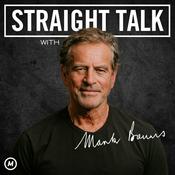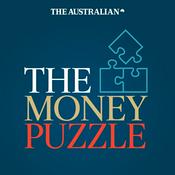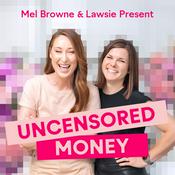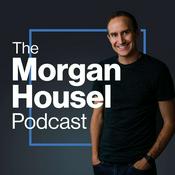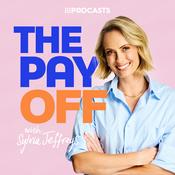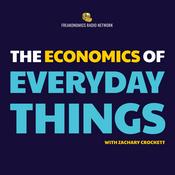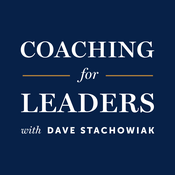24 episodes
- As we wave goodbye to 2025, I'm taking time to reflect on the financial journey we've all trekked this year. This has been a mixed bag of unexpected aha moments and those little nudges to keep us grounded. Managing money isn't about flashy moments; it's about the steady, everyday stuff that actually gets you somewhere. Today, I'm sharing what 2025 has taught me about money, and I hope these lessons resonate with you and maybe even spark your own reflections as we gear up for what's next.
We're exploring the relentless truth of compounding and how it shows up in every part of life, not just investments. I'll share how decisions from years ago, like saving regularly and investing early, are now paying off with our house and cars paid off. But it hasn't been all smooth sailing. A house renovation this year threw some curveballs and reminded me that compounding works on both good and not so good habits. We'll also discuss the power of consistent choices, the 80/20 rule and why aligning your spending with what really matters can bring more joy than those small, forgettable purchases.
This year has taught me that boring financial routines are actually something to celebrate, knowing they bring true stability and peace of mind. From cutting back on school tuck shops to save for a family trip to Japan, to embracing the steady work of budgeting and saving, these lessons have shown me that it's never too late to make better financial decisions. Your future self will thank you for the intentional moves you make today.
LINKS
Book a free 15 minute discovery call with Alissa: https://calendly.com/gtag/podcast-calendar-booking
Want to know more about commercial property? Join our commercial property mailing list here:
https://preview.mailerlite.io/preview/145360/emails/143452890515637989
Or send an email to our commercial property strategist John Herman: [email protected]
Website: https://goldentrianglefinancegroup.com.au/ - If you're standing at the crossroads of finishing school and stepping into adulthood, you're likely riding a wave of emotions. Excitement, nervousness, anticipation, maybe even a bit of fear about what comes next. Today, I'm sharing the financial lessons I wish someone had sat me down and explained when I was leaving school. These tips can make a massive difference to your future, whether you're heading to university, starting an apprenticeship, jumping straight into work or still figuring out your next move.
We're diving into four essential money habits that will set you up for success. From the golden rule of saving 10% of everything you earn (even if it's just $10 a week) to avoiding the trap of expensive car loans that can clip your financial wings. We'll also tackle the boring but essential topic of superannuation and why getting it right now saves you from extra fees and headaches down the track. Plus, if you're on Centrelink benefits, we'll discuss how to avoid that dreaded surprise letter saying you owe money.
This phase is all about learning and growing. You don't need to have it all figured out right away. Start with these small steps, be consistent and watch your confidence build. Money smarts don't come from having it all but from starting, making mistakes and learning as you go. Remember, it's never about how much money you have but how smartly you handle it from here on out.
Links
Book a free 15 minute discovery call with Alissa: https://calendly.com/gtag/podcast-calendar-booking
Want to know more about commercial property? Join our commercial property mailing list here:
https://preview.mailerlite.io/preview/145360/emails/143452890515637989
Or send an email to our commercial property strategist John Herman: [email protected]
Website: https://goldentrianglefinancegroup.com.au/ - Spring is here, and while most people are doing a spring clean of their homes, we're doing a spring clean of our finances and money habits. Today I'm sharing the top nine things I do every spring to stay mindful about my money. I usually take a look at not only what I'm spending, but what's happening to that money.
The episode covers practical steps like checking subscriptions you haven't used in 90 days, finding better deals on utilities and insurance, and reassessing your home loan to avoid that costly loyalty tax. We'll also discuss the importance of rekindling your money goals - whether it's saving for a holiday or paying down debt - and how small adjustments can add up to significant improvements over time.
You don't have to turn your financial world upside down overnight. Tackle one or two tips a week, and by the end of spring, you'll breathe easier knowing you've made real progress. Spring isn't about drastic changes, but rather making small adjustments that add up to significant improvements. Here’s to a financially savvy spring!
Links
Book a free 15 minute discovery call with Alissa: https://calendly.com/gtag/podcast-calendar-booking
Want to know more about commercial property? Join our commercial property mailing list here:
https://preview.mailerlite.io/preview/145360/emails/143452890515637989
Or send an email to our commercial property strategist John Herman: [email protected]
Website: https://goldentrianglefinancegroup.com.au/ - If you've been with the same bank, phone company or electricity provider for years, you might be paying what's called a "loyalty tax" - and it's costing you more than you think. This isn't an actual government tax, but rather the extra money you're forking out simply because you've stayed loyal to a service provider while they roll out the red carpet for new customers with better deals.
Today we’re diving into how this system works across industries - from telecommunications to banking - and why loyal customers like you are essentially subsidising the flashy offers companies use to attract new business. You'll discover why that attractive introductory offer you signed up for years ago has likely been surpassed by what new customers are getting today, and how companies bank on your loyalty while quietly hiking your rates.
The good news? Breaking free from loyalty tax is often surprisingly simple, and we'll share practical strategies for doing just that. From the magic question you should ask your providers annually to when it might be worth bringing in professional help, this episode arms you with the tools to stop overpaying for services simply because you've been a loyal customer.
Links
Book a free 15 minute discovery call with Alissa: https://calendly.com/gtag/podcast-calendar-booking
Want to know more about commercial property? Join our commercial property mailing list here:
https://preview.mailerlite.io/preview/145360/emails/143452890515637989
Or send an email to our commercial property strategist John Herman: [email protected]
Website: https://goldentrianglefinancegroup.com.au/ - I'll be the first to admit - there was nothing fundamentally wrong with the residential properties my family invested in over the years. But looking back with the knowledge I have now? I absolutely wish we'd done things differently. Through running our mortgage broking and business finance operation, I get to see something most investors never do - the real numbers on both residential and commercial deals. And here's what I've learnt: once you truly understand these numbers, you become a firm believer in commercial over residential.
Today we’re talking about why residential property's comfort zone might actually be a double-edged sword. Sure, everyone's lived in a house and it feels familiar, but when you peel that back, you'll find a 5% return that sounds okay until you factor in the relentless parade of bills. Suddenly, you're barely breaking even. Then there's commercial properties - yes, they ask for a heftier deposit, but the reward is in the numbers. We're talking 6.5% returns where tenants often shoulder many costs, leaving you with tidy and predictable cash flow that's frankly a lot more gratifying.
I'm making the pitch for embracing the "boring" side of commercial real estate - and let me tell you, that's precisely its charm. We'll explore why dealing with businesses and professionals beats residential tenant horror stories and how commercial properties shift this paradigm significantly.
The numbers don't lie, and neither does experience. If you're serious about building wealth through property investment, it's time to look beyond the familiar and embrace the boring brilliance of commercial real estate. Your future self will thank you for making decisions based on logic rather than emotion.
Links
Book a free 15 minute discovery call with Alissa: https://calendly.com/gtag
Want to know more about commercial property? Join our commercial property mailing list here:
https://preview.mailerlite.io/preview/145360/emails/143452890515637989
Website: https://goldentrianglefinancegroup.com.au/
More Business podcasts
Trending Business podcasts
About Teach Me Money
Money can often feel like a mysterious, taboo subject that we're reluctant to discuss with our friends and family. It's often seen as rude or unsavoury to talk about finances openly, but I'm here to change that narrative. Money doesn't have to be complicated, though it's not necessarily easy either. It all comes down to making those small, consistent steps that can shape your financial future.
With over 20 years in finance, five years as a mortgage broker, and running my own finance and mortgage broking business for the last three years, I have the qualifications and passion for sharing my knowledge with you. Through my work, I've witnessed firsthand the challenges many families face when it comes to managing money. Some have been taught well, while others just need a few tweaks to change the trajectory of their lives. And then there are those recovering from costly financial mistakes.
In "Teach Me Money," we'll break down the how, why, and what next of money management in a straightforward way. I'll tackle your toughest questions, debunk common myths, and most importantly, offer actionable tips to help you get ahead. Whether it's making your money a non-negotiable part of every pay cycle or understanding how to finally buy that property to grow your wealth, I've got your back.
If you're just starting on your financial journey or have already faced some bumps along the way, you're in the right place. Join me every fortnight as I dive into practical tips and share inspiring stories of clients who have successfully navigated this path. Together, we'll make sense of money and craft a plan for your financial success.
Please note, this podcast is for general information purposes only and not financial advice. Always consult with a licensed financial planner before making decisions about your personal finances.
Podcast websiteListen to Teach Me Money, The Money Café with Alan Kohler and many other podcasts from around the world with the radio.net app

Get the free radio.net app
- Stations and podcasts to bookmark
- Stream via Wi-Fi or Bluetooth
- Supports Carplay & Android Auto
- Many other app features
Get the free radio.net app
- Stations and podcasts to bookmark
- Stream via Wi-Fi or Bluetooth
- Supports Carplay & Android Auto
- Many other app features


Teach Me Money
Scan code,
download the app,
start listening.
download the app,
start listening.









